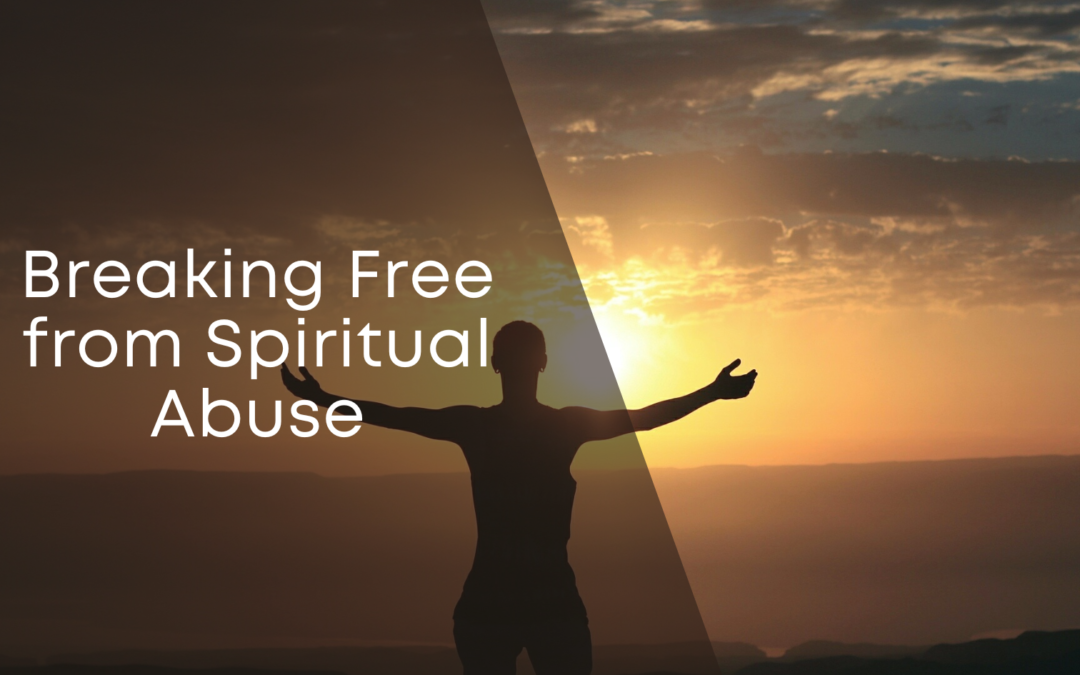Imagine Sarah, a devoted wife and mother, standing at a crossroads in her life. After enduring years of emotional manipulation and control within her religious community, she gathers the courage to leave her abusive marriage. However, as she embarks on this journey of liberation, she discovers that the wounds of spiritual abuse run deep, hindering her ability to heal and move forward. Sadly, Sarah’s story is not uncommon. Many individuals facing divorce grapple with the profound effects of spiritual abuse, perpetuated by leaders who exploit religious teachings for personal gain.
The Problem
In the tumult of divorce, individuals not only contend with the dissolution of their marriage but also confront the enduring effects of spiritual abuse. Victims find themselves ensnared in a web of manipulation and control, where leaders exploit religious beliefs for personal gain. This abuse manifests in various forms, from financial coercion to emotional blackmail, leaving individuals feeling trapped and powerless.
The insidious nature of spiritual abuse leaves deep psychological scars, eroding self-esteem and fostering guilt and shame. Victims are conditioned to believe that any deviation from doctrine signifies spiritual weakness, exacerbating feelings of inadequacy and self-doubt. At its core, spiritual abuse represents a betrayal of trust and a perversion of faith, distorting the fundamental principles of religious teachings to justify control and manipulation. This betrayal not only undermines the victim’s sense of self-worth but also calls into question the integrity of the religious institution itself.
Factors of Spiritual Abuse
As a seasoned divorce mediator with over 30 years of experience, I’ve witnessed firsthand the profound impact of spiritual abuse on divorcees. Yet, I firmly believe that healing and redemption are possible. Here’s how individuals can navigate the aftermath of spiritual abuse:
The Anatomy of Spiritual Abuse
At its core, spiritual abuse thrives on power differentials, often perpetrated by leaders who distort religious teachings for personal gain. These individuals wield scriptures as weapons, selectively interpreting them to instill fear and submission, effectively quashing any semblance of dissent or critical thinking. The victims of such abuse find themselves ensnared in a web of manipulation, stripped of their autonomy and silenced by the oppressive weight of religious authority.
The stark reality of spiritual abuse is evident in the testimonies of survivors who have endured the tyranny of cultic organizations. I’ve encountered numerous individuals who have bravely shared their stories of coercion and control, recounting tales of being forced to surrender their financial resources, personal freedoms, and even their identities to charismatic leaders. In these toxic environments, dissent is met with condemnation, and questioning is seen as an act of rebellion punishable by excommunication or worse.
Recognizing the Signs
Victims of spiritual abuse often find themselves trapped in a labyrinth of confusion, self-doubt, and guilt. They’re conditioned to believe that any deviation from the prescribed doctrine is a sign of spiritual weakness or moral failing, leading to a profound sense of shame and inadequacy. This manipulation perpetuates a vicious cycle of dependency, wherein the victim’s sense of self-worth becomes inexorably tied to their compliance with the abuser’s demands.
As a licensed psychotherapist, I’ve borne witness to the devastating toll of spiritual abuse on the mental and emotional well-being of its victims. Clients have shared harrowing accounts of gaslighting, manipulation, and psychological torment at the hands of those entrusted with their spiritual guidance. The erosion of their self-esteem and the fracturing of their identities leave them adrift in a sea of uncertainty, struggling to reconcile their faith with the trauma they’ve endured.
Breaking Free and Healing
Escaping the clutches of spiritual abuse requires immense courage and unwavering determination. It begins with the courageous act of removing oneself from the toxic environment, breaking free from the chains of manipulation and reclaiming autonomy. Seeking guidance from qualified professionals outside the religious sphere is essential for navigating the complex terrain of trauma recovery and rebuilding shattered self-esteem.
In addition to individual therapy, joining support groups can provide survivors with a sense of solidarity and validation as they navigate the tumultuous waters of healing. These safe spaces offer a refuge from judgment and condemnation, allowing survivors to share their experiences openly and honestly without fear of reprisal. Through collective empowerment and mutual support, survivors can begin to reclaim their voices and rewrite the narratives of their lives.
How to Help Yourself
1. Seek Professional Help: Reaching out to qualified professionals, such as licensed therapists or divorce mediators, is a vital step in your journey to freedom. These experts offer tailored guidance and support to address your specific needs. Through therapy, you can begin to process the trauma of spiritual abuse, rebuild your self-esteem, and develop healthy coping mechanisms to navigate challenges.
2. Join Support Groups: Finding support from others who have walked a similar path can be empowering. Consider joining support groups or online communities dedicated to healing from spiritual abuse. In these safe spaces, you’ll find validation, solidarity, and a sense of belonging as you navigate divorce and recovery. Connecting with fellow survivors provides invaluable insights and encouragement.
3. Consider Divorce Mediation: Exploring alternative avenues for divorce, such as mediation, can offer a collaborative and cost-effective path to resolution. Divorce mediators facilitate open communication and negotiation, empowering individuals to reach mutually beneficial agreements while minimizing conflict and stress. Opting for mediation allows you to retain control over the process, prioritizing your well-being and autonomy.
What’s Next?
The journey to healing after divorce and spiritual abuse may be challenging, but it is worth taking. By seeking help, finding support, and exploring alternatives like divorce mediation, individuals can reclaim their autonomy and rewrite their stories with resilience and redemption. If you’re facing the aftermath of spiritual abuse, know that you’re not alone. Take the first step towards healing today.


Recent Comments